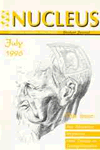Why believe the Bible?
Nitpickerus: I'm not at all sure about the Bible Dionysius. Is it really that important to accept its authority?
Dionysius: Do you accept the authority of Christ?
Nitpickerus: Of course.
Dionysius: Well, belief in the authority of the New Testament follows logically from belief in the authority of Christ. It was he who, according to the eyewitnesses,[1] gave the apostles authority to pass on his teaching.[2]
Nitpickerus: So how can we be sure they got it right? Jesus was hardly around to confirm what they wrote.
Dionysius: They had the Holy Spirit to remind them of everything he said,[3] and to guide them.[4]
Nitpickerus: But the twelve apostles didn't write the New Testament. Apart from Matthew, Peter and John (who wrote only eight of the 27 books between them) none of them wrote anything that has survived. Most of the New Testament (15 books in fact) was written by Paul and Luke.
What about Luke, Paul, Mark...?
Dionysius: You're right, but Paul was called to be an apostle by Christ.[5] He received what he taught directly from the Lord.[6]
Nitpickerus: How can you be sure?
Dionysius: Peter and John confirmed it.[7]
Nitpickerus: Only according to Paul.
Dionysius: No, Peter confirms it himself. He regarded Paul's writing as Scripture.[8]
Nitpickerus: What about Luke? He never even met Christ.
Dionysius: True, but he was a member of Paul's apostolic team.[9] Paul quotes his words as Scripture too.[10]
Nitpickerus: And Mark? Wasn't he rejected by Paul?[11]
Dionysius: Only to be later reinstated.[12] Even when they did fall out, Mark travelled with Barnabas, himself an apostle[13] whose authority was accepted by Peter and John.[14] Furthermore Mark's reliability is confirmed by Peter.[15]
Nitpickerus: So Christ through Peter, John (and Matthew) confirmed the authority of Paul, Luke and Mark. That still leaves us with three books: James, Jude and Hebrews.What about them?
Dionysius: James and Jude were written by the Lord's brothers.[16] James, as well as being a key figure at the Jerusalem Council,[17] assumed equal status with Peter and John.[18]
Nitpickerus: That still leaves Hebrews.
Dionysius: We can argue about who wrote it, but there are only a small circle of possible authors. If it was Paul (who chose to remain anonymous in order that his work wouldn't be rejected by Jewish Christians) or Barnabas, then Hebrews is covered by what I've said already. If it was Apollos, the other leading contender, then we know from both Paul[19] and Luke[20] that he was a much respected leader in the early church. You can raise objections Nitpickerus, but every book in the New Testament has the stamp of authority of the apostolic community, and therefore of Christ himself. If we doubted it for a moment, then the internal consistency of the teaching alone would confirm it. One Lord, one faith.[21]
Nitpickerus: What about the Old Testament?
What about the Old Testament?
Dionysius: Jesus gave it his stamp of authority.
Nitpickerus: In what way?
Dionysius: In four ways. First, he accepted its narratives as straightforward records of fact. Take the Garden of Eden,[22] the Flood,[23] Jonah,[24] and Sodom and Gomorrah[25] for example. It's ironical that the events Christ refers to as historical are the ones that the twentieth century mind has the most difficulty accepting.
Nitpickerus: Maybe he was just a child of the time; unenlightened by scientific thinking.
Dionysius: Jesus is the light of the world Nitpickerus.[26]Maybe we're not as enlightened as we think.
Nitpickerus: Perhaps he just acted as though he believed it so as not to upset the Jews.
Dionysius: But why should he then take the Jews to task for every other wrong belief?[27]
Nitpickerus: You said there were four ways?
Dionysius: Second, he quoted it as the final court of appeal in debates: with the devil,[28] the Pharisees,[29] the Sadducees[30] and his own disciples.[31] For Jesus, if it was 'written' then that was the end of the argument.
Nitpickerus:And...
Dionysius: Third, he believed that Old Testament prophecy was fulfilled in him. He applied messianic titles like 'Son of Man'[32] and 'Son of God'[33] to himself; and claimed to be the Messiah.[34] After the resurrection he went through all the Scriptures with his disciples, pointing out where he appeared.[35] Fourth, and perhaps most importantly, he upheld and obeyed the Old Testament's ethical teaching.[36] It was only Jesus who could say 'can any of you prove me guilty of sin?' and have no-one answer.[37]
The Bible: authoritative and sufficient, but...
Nitpickerus: So belief in Christ's authority leads to belief in the Bible's authority?
Dionysius: Yes. He gave his stamp of authority to the Old Testament, and commissioned the writing of the New Testament. It's not surprising therefore that there are such stern warnings throughout Scripture about adding to or subtracting from what God has revealed.[38]
Nitpickerus: Do you then believe that the Bible contains all that there is to know?
Dionysius: The Bible is authoritative in all that it affirms; it's God-breathed. It's also sufficient; telling us both how to be saved and how to live.[39] But of course it's not exhaustive. It doesn't tell us everything.
Nitpickerus: So there is truth about God that's not revealed in the Bible?
Dionysius: Of course. There are things God has chosen not to reveal about himself and his purposes.[40] We need the wisdom to know what those are; in order to follow Paul's advice not to go 'beyond what is written'.[41] If we did this, much controversy in the church could be avoided.
Nitpickerus: But don't Christians from different traditions claim that God speaks independently of the Bible: through church tradition, or prophecy or conscience? Isn't this the whole problem? Surely you're not saying that God doesn't speak in these ways too?
Dionysius: That's a question for the next issue of Nucleus.
































